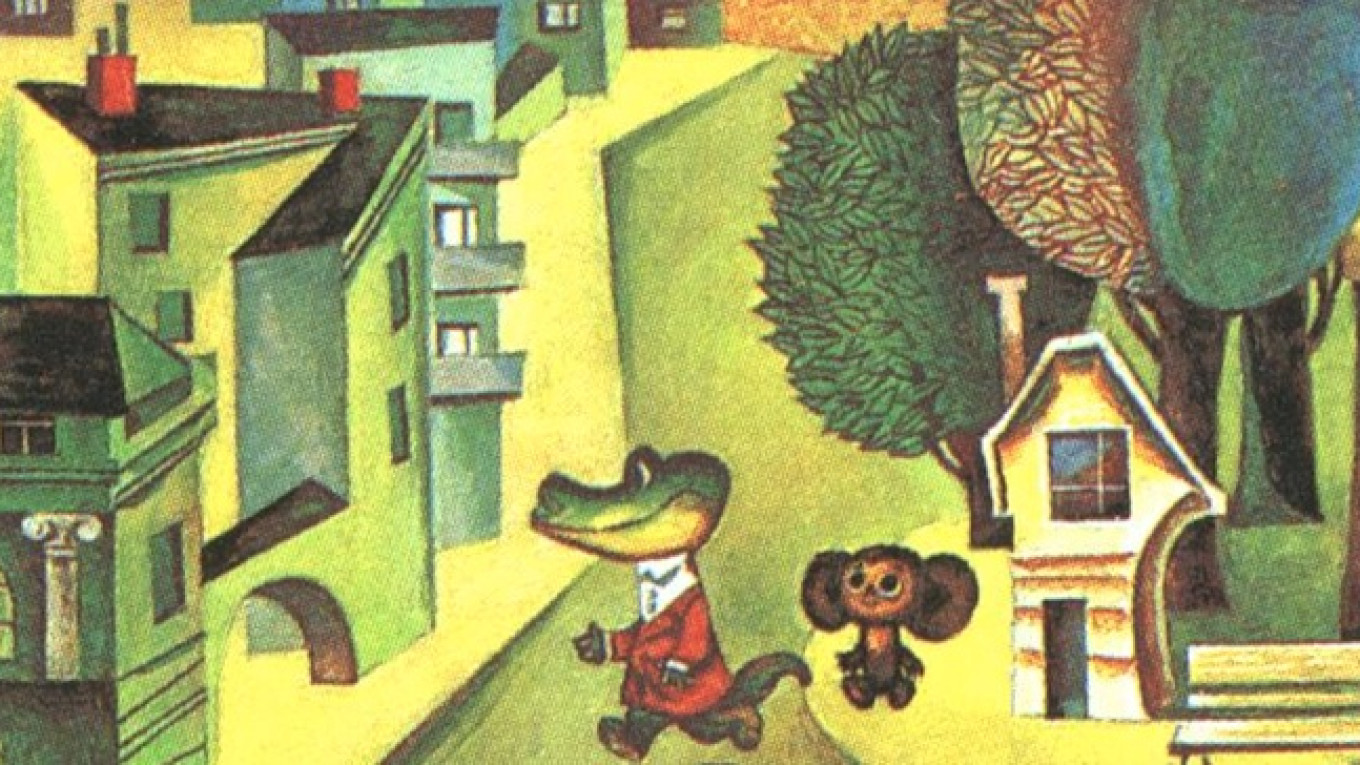A Russian senator has proposed the creation of a Russia-only Internet that would be shut off from the U.S. and EU and said that the service could be named after the popular children's cartoon character Cheburashka.
Maxim Kavdzharadze, a Federation Council member from the Lipetsk region, told fellow lawmakers Monday that Russia needs to "get out from under the wing of the U.S., otherwise information leaks will continue," RIA Novosti reported.
Kavdzharadze proposed creating a domestic Internet that could also possibly be used by other Collective Security Treaty Organization countries — Belarus, Armenia, Kazakhstan, Kyrgyzstan and Tajikistan — or countries from the Asia-Pacific region.
His suggestion comes at a time when the Russian government is perceived by observers to be seeking greater control of the Internet.
The Federation Council on Tuesday passed a bill that would classify bloggers as mass media and require foreign web companies to store users' data on Russian soil, while Russia's media watchdog said Monday that it intended to exercise greater control over the web to protect users from harmful information.
Furthermore, President Vladimir Putin said last week that the Internet had been a special CIA project and that Yandex, Russia's most popular search engine, had been subject to Western influence when it started out.
Speaking about possible new restrictions, security expert Andrei Soldatov told The Moscow Times Monday that Russia is "one step away from the Great Firewall of China."
However, Kavdzharadze's domestic Internet may have a less intimidating name than the Chinese government's filter against many foreign websites such as Facebook. "What we call this system doesn't matter, Gena the Crocodile or Cheburashka. The latter is preferable in so much as no one else has Cheburashka," he said.
Russian legislators have been coming up with ways of phasing out Russia's use of foreign resources in light of the recent Western sanctions, including the approval of a domestic payment system to cut Russia's dependence on Visa and MasterCard, which have stopped providing services for payment transactions for clients at a number of Russian banks.
Kavdzharadze updated his Internet proposal later Monday, saying that he intended Cheburashka to be used mostly by the scientific community, "so that there is no leak if technology is being developed."
But the prospect of a Russia-controlled Internet was also reported by Kommersant Tuesday morning, which cited an unidentified source in the telecommunications market as saying that a large part of the presidential administration was working on the project.
The domestic Internet would include giving a federal agency a place in the domain name application process, requiring all ".ru" websites to be run through servers in Russia and making foreign websites accessible only through national service providers that are easily controlled, Kommersant reported.
See also:
A Message from The Moscow Times:
Dear readers,
We are facing unprecedented challenges. Russia's Prosecutor General's Office has designated The Moscow Times as an "undesirable" organization, criminalizing our work and putting our staff at risk of prosecution. This follows our earlier unjust labeling as a "foreign agent."
These actions are direct attempts to silence independent journalism in Russia. The authorities claim our work "discredits the decisions of the Russian leadership." We see things differently: we strive to provide accurate, unbiased reporting on Russia.
We, the journalists of The Moscow Times, refuse to be silenced. But to continue our work, we need your help.
Your support, no matter how small, makes a world of difference. If you can, please support us monthly starting from just $2. It's quick to set up, and every contribution makes a significant impact.
By supporting The Moscow Times, you're defending open, independent journalism in the face of repression. Thank you for standing with us.
Remind me later.


